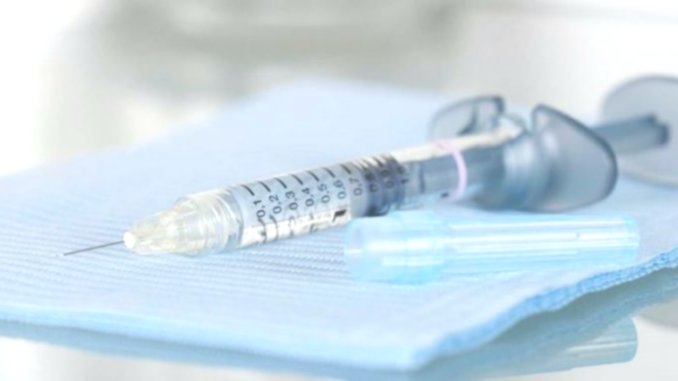
Anti-hormone therapy is a treatment for treating certain types of cancer. The aim is to prevent the tumor from further growth by withdrawing the hormones. Today it is known that many tumors are not triggered by hormones, but their growth is influenced by them. By reducing the hormones, the progression of the cancer can therefore be slowed down or even stopped. However, it is also possible to influence the susceptibility of the tumors to hormones. If you have cancer, anti-hormone therapy can be an effective additional treatment.

Anti-hormone therapy for cancer
Hormones affect many processes in the body. However, they also influence the growth of tumor cells in some types of cancer. These tumors therefore have a certain dependency on hormones. If the formation of these hormones is suppressed or if the tumors are prevented from contacting hormones, this can significantly improve the prognosis. In addition, some tumors are even able to form hormones themselves and thus promote their growth. This is also stopped with anti-hormone therapy. Such an anti-hormone therapy affects the entire organism, not just where the tumor is located. This can cause numerous side effects. However, anti-hormone therapy is generally considered to be better tolerated than is the case with chemotherapy. It is also possible to adjust the therapy
Different approaches for successful therapy
Various medications are available for this therapy. The decision for the drug depends on the type of cancer. But your age also plays a role. A woman in the menopause will receive a different preparation than a young woman of childbearing age. This also applies to you as a man if you have prostate cancer. In this case too, the state of play must be taken into account and the therapy adapted to you. The drugs are taken in tablet form or given as an injection. The treating doctors make the decision for the necessary medication after the diagnosis. The stage of the disease is also taken into account.
Anti-hormone therapy is used for these types of cancer
Anti-hormone therapy works for all types of cancer that are hormone-dependent.
These are the following types of cancer:
- Breast cancer (not all forms)
- Prostate Cancer
- cervical cancer
- Ovarian Cancer
- Thyroid
These types of cancer are hormone sensitive (hormone receptor positive). Strictly speaking, there are receptors on the tumors that serve as a docking point for the hormones. With anti-hormone therapy, you are given medications that prevent this docking. The hormones from the organs of origin still exist, but they no longer reach the tumors. You can only determine whether a tumor is sensitive to hormones by examining the tissue. The search for the receptors is targeted. A minimum amount of the receptors must also be present for the anti-hormone therapy to be successful. Treatment can take place over a certain period of time. However, you may also need to take the medication for a lifetime.
These drugs are available
Medications include:
- GnRH analogues
- anti-hormones
- Aromatase inhibitors
- progestins

GnRH analogues are synthetically produced hormones and interrupt the hormonal control loop. As a result, the ovaries no longer produce estrogen or the testes no testosterone. Anti-hormones counteract estrogens or testosterone. They occupy the receptors on the tumors and prevent the reinforcing effect on the growth of the cancer. Aromatase inhibitors inhibit the aromatase enzyme. However, this enzyme is required to produce estrogen. Aromatase inhibitors are therefore used in the treatment of breast cancer. Progestogens for anti-hormone therapy are also manufactured synthetically. They reduce the formation of estrogens, but also the receptors for estrogens on the tumors.
Other options for hormone treatment
Instead of changing the ability of the receptors on the tumors, it is also possible to remove the hormone-producing organs. In the past, this approach was the most common way to reduce the influence of hormones on cancer. Alternatively, it is a way to irradiate the hormone-producing organs and thus stop the production of the hormones. The advantage of anti-hormone therapy is that this process is reversible. After the end of the intake the hormone formation can normalize.
Who pays for the cost of anti-hormone therapy?
First of all, the anti-hormone therapy is a benefit of the health insurance. It is therefore not necessary for you to assume the costs. After the diagnosis, the doctor in the team will determine the therapy plan. Anti-hormone therapy can also be included. Whether the decision is made depends on many factors. This includes the stage of the disease and the prognosis. In addition to anti-hormone therapy, there are many other methods available that are also suitable for fighting cancer or at least preventing the tumor from growing and spreading. If in your case the doctors’ decision against anti-hormone therapy is made, you will be informed of the reasons. If you have any doubts, you can obtain further opinions and also consult the health insurance company.
If you are privately insured and have to make advance payments, please also discuss the payment arrangements with the health insurance company.
Additional benefits are covered by the health insurance
Anti-hormone therapy increases the risk of changes in bone density. You should therefore regularly undergo such an examination. This service is now also covered by the health insurance. If your doctor offers other procedures to help you treat cancer and recovery, he will tell you about the possible costs. Here, too, you have the option of applying to the health insurance company to cover the costs. This is also possible for examinations or treatments that are not covered by the normal service catalog. The decision is then at the discretion of the health insurance company.
More than ordinary control power
Anti-hormone therapy is associated with costs that are covered by the health insurance in most cases. It becomes difficult when patients want care that goes beyond the standard benefits of statutory health insurance, because there are limits to these wishes.